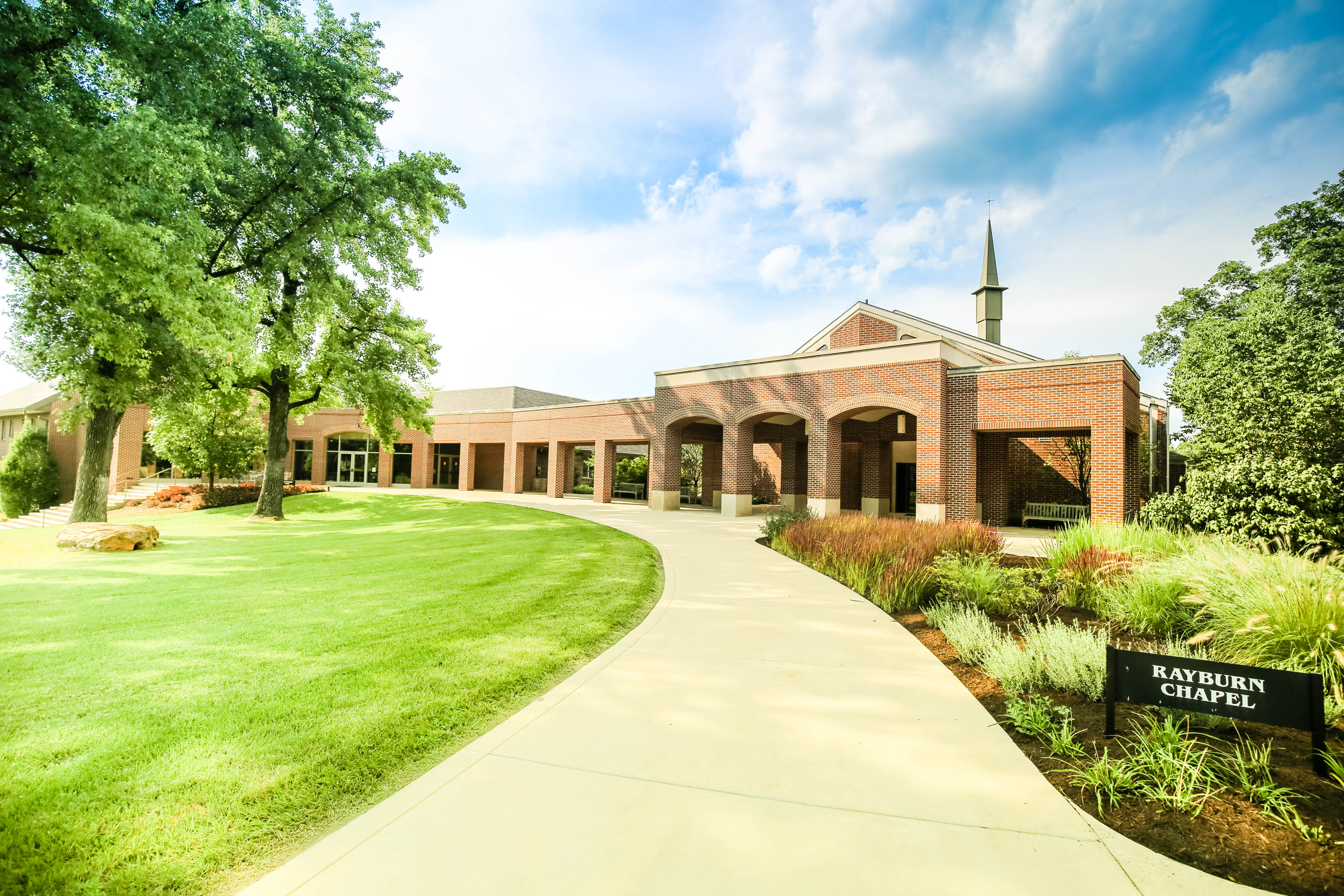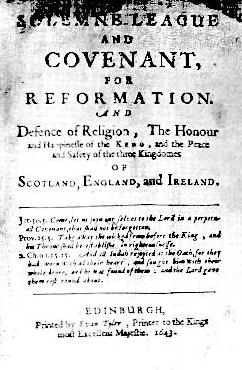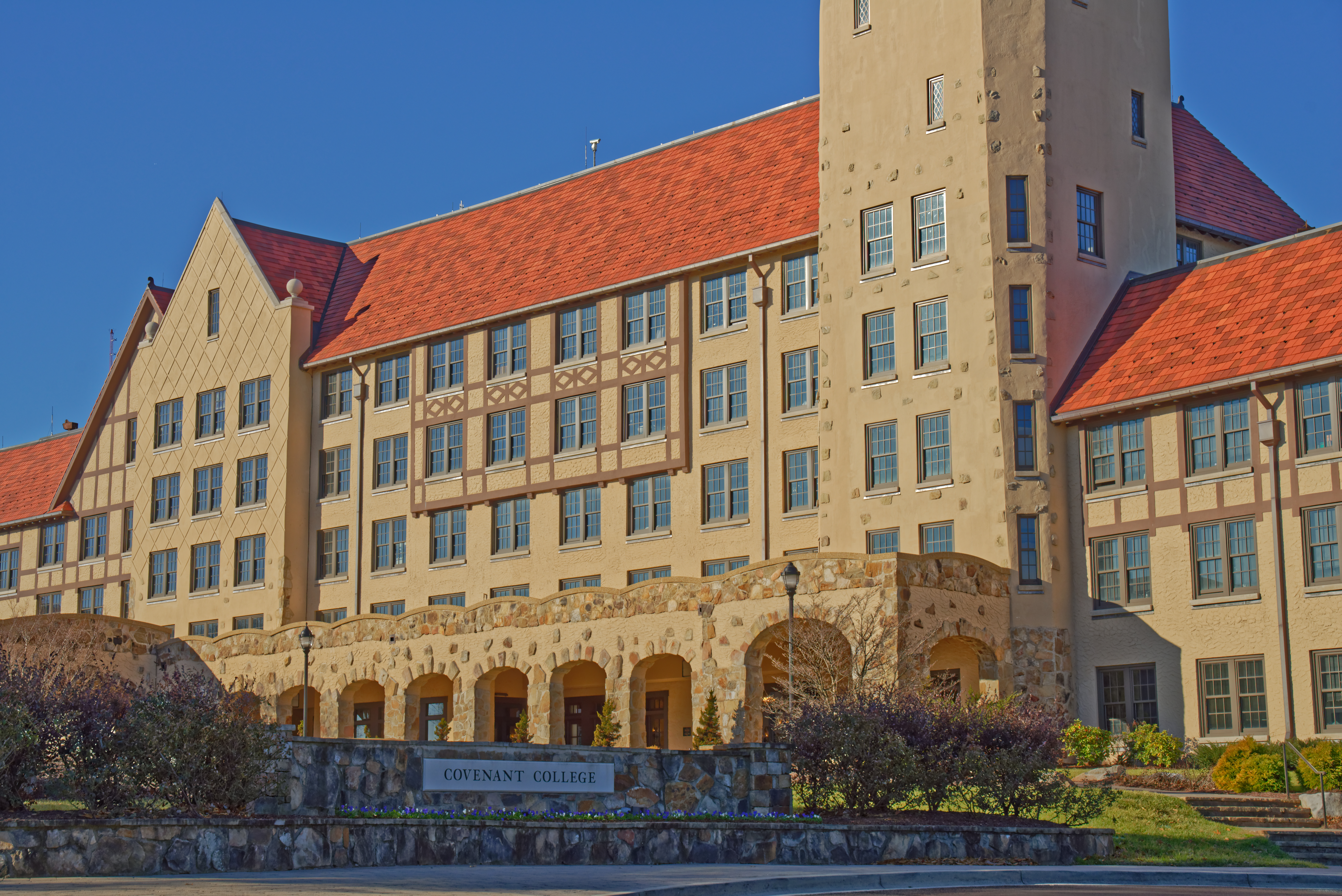|
Evangelical Presbyterian Church (1961)
The Evangelical Presbyterian Church was a Reformed denomination founded in 1956. History The church was composed of the majority of the Bible Presbyterian Church which left that denomination over what it felt was the strong influence of Carl McIntire and the fundamentalists, while the new church (then the BPC Columbus Synod) had a stronger emphasis on the Reformed aspect of belief and practice. This split occurred in 1956. Carl McIntire developed into a rather heavy-handed, dictatorial leader in the BP denomination and some of his colleagues like Buswell and Harris and younger men, most notably Donald MacNair and Robert Rayburn, began resisting this trend. Tensions came to a head in 1955, when the entire BP Church numbered about 8,760 members (the OPC was about the same size at this time). About 43% of the church followed McIntire in leaving and they formed what came to be known as the BP Church, Collingswood (NJ) Synod; the majority remained in what was initially known as t ... [...More Info...] [...Related Items...] OR: [Wikipedia] [Google] [Baidu] |
Presbyterian Polity
Presbyterian (or presbyteral) polity is a method of church governance ("ecclesiastical polity") typified by the rule of assemblies of presbyters, or elders. Each local church is governed by a body of elected elders usually called the session or ''consistory'', though other terms, such as ''church board'', may apply.For example, the Church of the Nazarene, which subscribes to a body of religious doctrines that are quite distinct from those of most properly named Presbyterian denominations (and which instead descends historically from the Wesleyan Holiness Movement), employs a blend of congregationalist, episcopal, and presbyterian polities; its local churches are governed by an elected body known as the church board or simply "board members"; the term elder in the Nazarene Church has a different use entirely, referring to an ordained minister of that denomination. Groups of local churches are governed by a higher assembly of elders known as the presbytery or classis; presbyter ... [...More Info...] [...Related Items...] OR: [Wikipedia] [Google] [Baidu] |
Covenant Theological Seminary
Covenant Theological Seminary, informally called Covenant Seminary, is the denominational seminary of the Presbyterian Church in America (PCA). Located in Creve Coeur, Missouri, it trains people to work as leaders in church positions and elsewhere, especially as pastors, missionaries, and counselors. It does not require all students to be members of the PCA, but it is bound to promote the teachings of its denomination. Faculty must subscribe to the system of biblical doctrine outlined in the Westminster Standards. History The seminary was established in 1956 as a sister institution to Covenant College, founded the previous year in Pasadena, California. Both were agencies of the Bible Presbyterian Church (Columbus Synod). The institution's founders believed that their denomination needed a strong theological school to resist liberalizing influences in American Evangelicalism. The college and seminary shared the a president and campus in St. Louis until the college outgrew its sp ... [...More Info...] [...Related Items...] OR: [Wikipedia] [Google] [Baidu] |
Christian Organizations Established In 1956
Christians () are people who follow or adhere to Christianity, a monotheistic Abrahamic religion based on the life and teachings of Jesus Christ. The words ''Christ'' and ''Christian'' derive from the Koine Greek title ''Christós'' (Χριστός), a translation of the Biblical Hebrew term ''mashiach'' (מָשִׁיחַ) (usually rendered as ''messiah'' in English). While there are diverse interpretations of Christianity which sometimes conflict, they are united in believing that Jesus has a unique significance. The term ''Christian'' used as an adjective is descriptive of anything associated with Christianity or Christian churches, or in a proverbial sense "all that is noble, and good, and Christ-like." It does not have a meaning of 'of Christ' or 'related or pertaining to Christ'. According to a 2011 Pew Research Center survey, there were 2.2 billion Christians around the world in 2010, up from about 600 million in 1910. Today, about 37% of all Christians live in the Amer ... [...More Info...] [...Related Items...] OR: [Wikipedia] [Google] [Baidu] |
Presbyterian Denominations In The United States
This is a list of Presbyterian and Reformed denominations in North America. There are more than 6 million Presbyterians in North America. Presbyterian denominations Larger Presbyterian denominations *Associate Reformed Presbyterian Church - around 22,459 members (2018) - Orthodox, Presbyterian, Calvinist, Covenanter & Seceder *Bible Presbyterian Church - around 3,500 members - Orthodox, Presbyterian, Calvinist *''partially:'' Communion of Reformed Evangelical Churches - around 15,000 members - Evangelical/Orthodox, Dutch Reformed/Presbyterian, Calvinist * Cumberland Presbyterian Church - around 65,087 members (2019) - Liberal, Presbyterian, Arminian *Cumberland Presbyterian Church in America - around 6,500 members - Liberal, Presbyterian, Arminian *Evangelical Assembly of Presbyterian Churches in America- 73 churches in the USA * ECO (Covenant Order of Evangelical Presbyterians) - more than 129,765 members, 320 churches and 500 Pastors (2018) - Evangelical, Presbyterian * Evangel ... [...More Info...] [...Related Items...] OR: [Wikipedia] [Google] [Baidu] |
Mark Noll
Mark Allan Noll (born 1946) is an American historian specializing in the history of Christianity in the United States. He holds the position of Research Professor of History at Regent College, having previously been Francis A. McAnaney Professor of History at the University of Notre Dame. Noll is a Reformed evangelical Christian and in 2005 was named by ''Time'' magazine as one of the twenty-five most influential evangelicals in America. Biography Born on July 18, 1946, Noll is a graduate of Wheaton College, Illinois (B.A, English), the University of Iowa (M.A., English), Trinity Evangelical Divinity School (M.A., Church History and Theology), and Vanderbilt University (Ph.D, History of Christianity). Before coming to Notre Dame, he was on the faculty at Wheaton College, Illinois for twenty-seven years, where he taught in the departments of history and theology as McManis Professor of Christian Thought. While at Wheaton, Noll also co-founded (with Nathan Hatch) and directed the I ... [...More Info...] [...Related Items...] OR: [Wikipedia] [Google] [Baidu] |
Francis Schaeffer
Francis August Schaeffer (January 30, 1912 – May 15, 1984) was an American evangelical theologian, philosopher, and Presbyterian pastor. He co-founded the L'Abri community in Switzerland with his wife Edith Schaeffer, , a prolific author in her own right. Opposed to theological modernism, Schaeffer promoted what he claimed was a more historic Protestant faith and a presuppositional approach to Christian apologetics, which he believed would answer the questions of the age. Schaeffer was the father of the author, film-maker, and painter Frank Schaeffer. Biography Schaeffer was born on January 30, 1912, in Germantown, Pennsylvania, to Franz A. Schaeffer III and Bessie Williamson. He was of German and English ancestry. In 1935, Schaeffer graduated ''magna cum laude'' from Hampden–Sydney College. The same year he married Edith Seville, the daughter of missionary parents who had been with the China Inland Mission founded by Hudson Taylor. Schaeffer then enrolled at We ... [...More Info...] [...Related Items...] OR: [Wikipedia] [Google] [Baidu] |
Reformed Presbyterian Church Of North America
The Reformed Presbyterian Church of North America (RPCNA) is a Presbyterianism, Presbyterian church with congregations and missions throughout the United States, Canada, Japan, and Chile. Its beliefs—held in common with other members of the Reformed Presbyterian Global Alliance—place it in the conservative wing of the Reformed churches, Reformed family of Protestantism, Protestant churches. Below the Bible—which is held as Biblical inspiration, divinely inspired and Biblical infallibility, without error—the church is committed to several "subordinate standards," together considered with its constitution: the Westminster Confession of Faith and Westminster Larger Catechism, Larger and Westminster Shorter Catechism, Shorter Catechisms, along with its Testimony, Directory for Church Government, the Book of Discipline, and Directory for Worship. Primary doctrinal distinctions which separate the RPCNA from other Reformed and Presbyterian denominations in North America are: its c ... [...More Info...] [...Related Items...] OR: [Wikipedia] [Google] [Baidu] |
Solemn League And Covenant
The Solemn League and Covenant was an agreement between the Scottish Covenanters and the leaders of the English Parliamentarians in 1643 during the First English Civil War, a theatre of conflict in the Wars of the Three Kingdoms. On 17 August 1643, the Church of Scotland (the Kirk) accepted it and on 25 September 1643 so did the English Parliament and the Westminster Assembly. English Parliament (First Civil War) At the time, the Protestant leaders of the English Parliament were in conflict with King Charles I. Fearing Irish Catholic troops could join the Royalist army, Parliament requested the aid of the Scots. The Presbyterian Covenanters promised their aid, on condition that the Scottish system of church government was adopted in England. This was acceptable to the majority of the English Long Parliament, as many MPs were Presbyterians, while others preferred allying with the Scots to losing the Civil War. After some haggling a document called "'' The Solemn League and Co ... [...More Info...] [...Related Items...] OR: [Wikipedia] [Google] [Baidu] |
Presbyterian Church In America
The Presbyterian Church in America (PCA) is the second-largest Presbyterian church body, behind the Presbyterian Church (USA), and the largest conservative Calvinist denomination in the United States. The PCA is Reformed in theology and presbyterian in government. History Background Presbyterians trace their history to the Protestant Reformation in the 16th century. The Presbyterian heritage, and much of its theology, began with the French theologian and lawyer John Calvin (1509–64), whose writings solidified much of the Reformed thinking that came before him in the form of the sermons and writings of Huldrych Zwingli. From Calvin's headquarters in Geneva, the Reformed movement spread to other parts of Europe. John Knox, a former Catholic priest from Scotland who studied with Calvin in Geneva, Switzerland, took Calvin's teachings back to Scotland and led the Scottish Reformation of 1560. As a result, the Church of Scotland embraced Reformed theology and presbyterian po ... [...More Info...] [...Related Items...] OR: [Wikipedia] [Google] [Baidu] |
Reformed Presbyterian Church In North America, General Synod
The Reformed Presbyterian Church, General Synod was a Presbyterian denomination that came about due to a split amongst the Reformed Presbyterians, or Covenanters and existed between 1833 and 1965. History The division had come about in 1833 between the Old and New Light Covenanters. The Old Lights had refused to swear allegiance to the constitution and thus become citizens, whereas the New Lights decide to allow for it. While the Old Light side was generally known as the Reformed Presbyterian Church of North America, the New Light was generally known as the Reformed Presbyterian Church, General Synod. Initially, the church did well, including sending missionaries to India, and adopting both a Book of Discipline and a Directory for Public Worship.Hutchison, George. The History Behind the Reformed Presbyterian Church, Evangelical Synod'. However, division soon began to plague the church, with a faction in Philadelphia arguing that the RPCGS had spent too much time arguing doctrina ... [...More Info...] [...Related Items...] OR: [Wikipedia] [Google] [Baidu] |
Covenant College
Covenant College is a private, liberal arts, Christian college in Lookout Mountain, Georgia, located near Chattanooga, Tennessee. As the college of the Presbyterian Church in America, Covenant teaches subjects from a Reformed theological worldview. Approximately 1,000 students attend Covenant each year. History Founded in 1955 in Pasadena, California, as an agency of the Bible Presbyterian Church, Covenant College and Covenant Theological Seminary moved its campus to St. Louis, Missouri, the following year. Following a split among the Bible Presbyterians, it became affiliated with the Bible Presbyterian Church-Columbus Synod (renamed the Evangelical Presbyterian Church in 1961). In 1964, it separated from the seminary, moving to Lookout Mountain, in Georgia. In 1965, it was the site of the merger between the Evangelical Presbyterian Church and the Reformed Presbyterian Church, General Synod to form the Reformed Presbyterian Church, Evangelical Synod. It became and remains an ... [...More Info...] [...Related Items...] OR: [Wikipedia] [Google] [Baidu] |
Reformed Church
Calvinism (also called the Reformed Tradition, Reformed Protestantism, Reformed Christianity, or simply Reformed) is a major branch of Protestantism that follows the theological tradition and forms of Christian practice set down by John Calvin and other Reformation-era theologians. It emphasizes the sovereignty of God and the authority of the Bible. Calvinists broke from the Roman Catholic Church in the 16th century. Calvinists differ from Lutherans (another major branch of the Reformation) on the spiritual real presence of Christ in the Lord's Supper, theories of worship, the purpose and meaning of baptism, and the use of God's law for believers, among other points. The label ''Calvinism'' can be misleading, because the religious tradition it denotes has always been diverse, with a wide range of influences rather than a single founder; however, almost all of them drew heavily from the writings of Augustine of Hippo twelve hundred years prior to the Reformation. The na ... [...More Info...] [...Related Items...] OR: [Wikipedia] [Google] [Baidu] |





